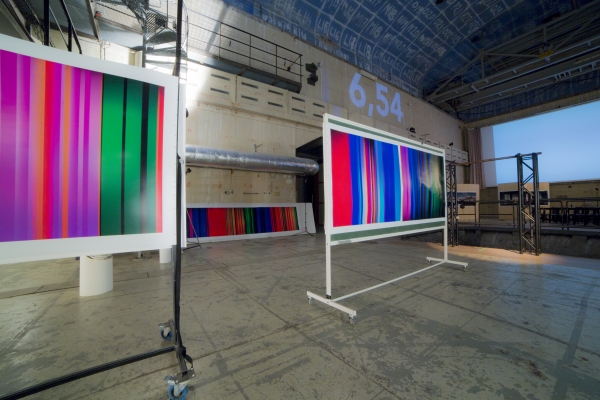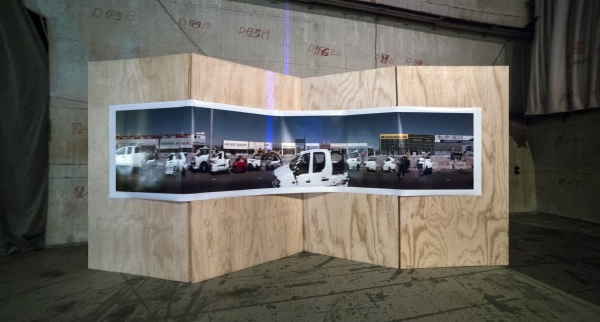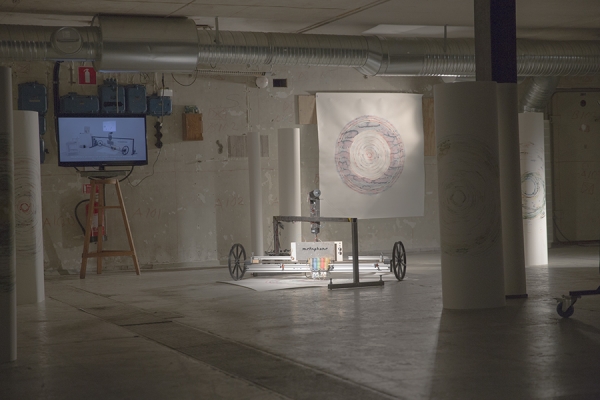Interpretative Digitality exhibition at the Reactor Hall
The solo exhibition “Interpretative Digitality” by Vygandas Šimbelis (artist alias Das Vegas) relates to the phenomenon which refers to finding countable, discrete units in our environment and behaviour. With this as a backdrop, there is an ongoing discourse within Human-Computer Interaction, as well as within the humanities and the arts, of a so-called “the digital-physical divide”. The exhibited works cover some approaches and concepts like the post-digital dimension and refer to the humanization of technology.
There are two ways of seeing the digital, one expressed through what digital means by reducing it to the fact that it builds on zeros and ones (a so-called reductionist account), versus recognizing it more broadly as what we typically mean by the “digital” – i.e. algorithms, data and the ability to traverse different hardware equipment, servers, sensors, actuators, IoT and so on – but most importantly having computation at the core. Another question is how the process of computation could be recognized as the digital and found in every stage of our lives, it relates to finding countable, discrete units in our environment and behaviour and is named interpretative digitality. These two accounts differ, but at the same time cause these perspectives of the same world to converge. The works in the exhibition rely on more of the “everyday” notion of what we mean by digital technologies and materials – the everyday culturally-accepted definition rather than the strict reductionist account.
The exhibits in the “Interpretative Digitality” reflect the artist’s approach which manifests through the hacking activities, disruptive techniques and aesthetic considerations. The accompanied PhD thesis "Humanizing Technology through Post-digital Art" discusses a set of constitutive concepts in relation to the artworks: machine aesthetics, digital upcycling, aleatoricism and chance, deletion, repetition, fault aesthetics and glitch aesthetics. These post-digital aesthetic principles depend on machinic, systematic behaviours in the technological world and the world of “masculine acceleration” could be susceptible to disruptive practices, it could be hacked by its own means, through using its own structures and machinery.
R1-Reactor Hall, Stockholm, Sweden
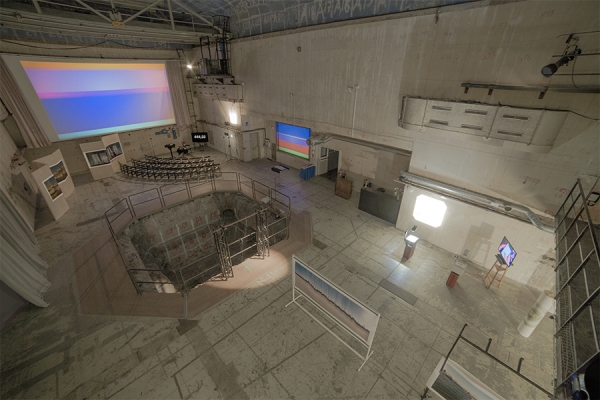
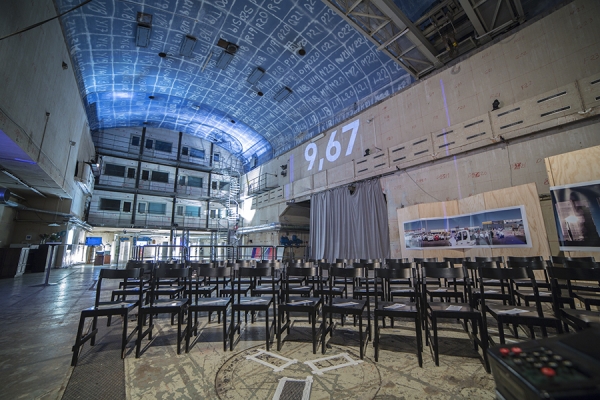


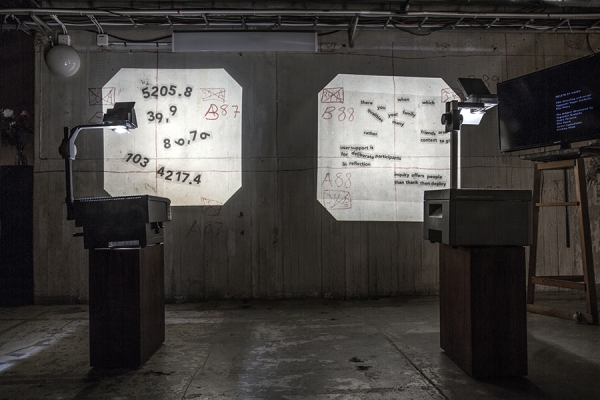
overhead interactive


